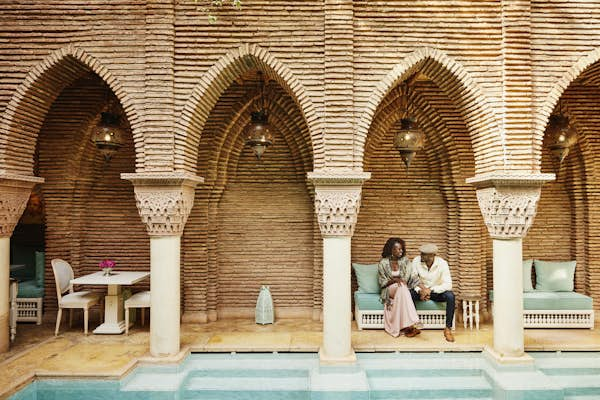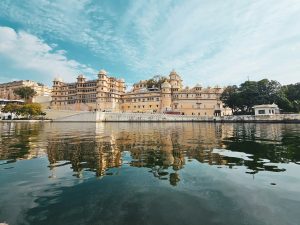
Travelers from around 70 countries, including the United States, Canada, Australia, New Zealand, the European Union and the United Kingdom, can travel to Morocco as tourists without a visa. The maximum stay is 90 days, which starts on the date of your entry stamp, not three calendar months.
For a complete list of visa-exempt countries and visa durations, check the website of the Moroccan Ministry of Foreign Affairs or the Moroccan embassy or consulate in your country. Some countries, such as Hong Kong and the Maldives are limited to 30 days of visa-free travel, so check whether there are any special conditions for traveling on your passport.
Passports of all travelers must have a spare page for immigration entry stamps and six months of validity after your entry into Morocco. Regardless of where you arrive in Morocco, check that your passport is stamped on arrival because this date entry and unique number will be referenced during your stay by accommodations and immigration officials.
Who needs a visa to visit Morocco?
Travelers who do require a tourist visa can apply for an e-visa and pay online. The e-visa is also known as Autorisation Électronique de Voyage au Maroc (AEVM). Check your eligibility and the document requirements and apply, pay and track your visa application using the Access Maroc website.
There are two e-visa options for Morocco. An E-visa Standard costs Dh770 and takes three business days to process. An E-visa Express costs Dh1100 and takes one business day to process. Both e-visas are valid 180 days from the issue date and allow visits to Morocco for up to 30 days.
Visa extension requests can be made at central police stations in Morocco, although they are not always guaranteed. Exiting the country and returning for a further 90 days in the same year is possible.
If you’re planning on taking a non-Moroccan vehicle into the country on the ferry from Spain, it is worth noting that vehicles are allowed in Morocco for six months in a calendar year. The driver’s tourist visa is governed by the rules of their passport, so if you are entitled to a 90-day visa-free stay, you will either have to extend your visa or leave the country and go back. Your car can stay for six months, but you cannot unless an extension is granted.
Does Morocco have a digital nomad visa?
Morocco does not have a working holiday or digital nomad visa. If you wish to stay in the country for more than 90 days, visit a central police station and ask about a carte de sejour, a residency card required to live and work legally in Morocco.
The process involves quite a lot of paperwork, including copies of your birth certificate, a police record check and recent bank statements. Your first carte de sejour is valid for one year. You need to reapply for three years and then five years and then 10 years and so on. Eligibility, fees and criteria depend on which category you are applying in. Some require a work contract, a business, a spouse, a property or retirement.



